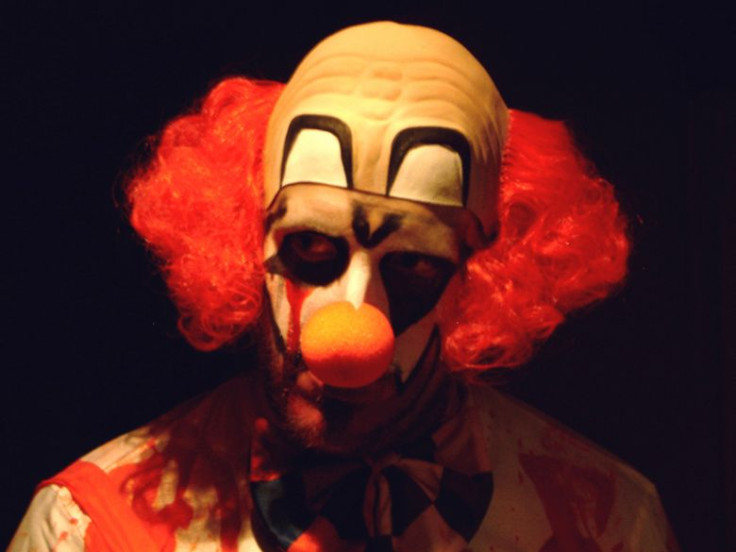Scary Clowns: Research May Explain How The Clown Went From Jester To Psycho Killer

Bad news, clowns.
Historical and psychological inquiry suggests that the clown figure we know today was cast in a negative light almost immediately, and has traditionally not been considered very funny by anyone. Coulrophobia, or fear of clowns, is a surprisingly pervasive psychological phenomenon; and although few can be said to suffer from a clinical phobia, most prefer to steer clear of jokers and jesters in white makeup.
According to an essay published in The Smithsonian, the ubiquitous fear is underpinned by a rather complex psychology informed by ancient mythology, popular culture, and actual events.
Scary Clowns And Psychology
One of the most obvious causes of clown phobia is perhaps the difficulty of accepting a simple character in a post-Freudian world inured to psychoanalytical tools and mental depth. A clown's isolated silliness implies a concealed, psychological flip side.
"Where there is mystery, it's supposed there must be evil, so we think, 'What are you hiding?'" explained Andrew McConnell Stott, English professor at the University of Buffalo, SUNY, and author of several articles on the subject.
Furthermore, the clown's fundamental strangeness and distorted appearance can be said to locate the figure within the infamous "uncanny valley" — the troubling danger zone in Freud's schematic representation of the foreign and familiar. Clowns, like dead bodies and certain humanoid robots, are uncanny in their awkward, asymptotic approximation of the human form. They feel familiar and utterly foreign at the same time.
"You don't really see clowns in those kinds of safe, fun contexts anymore. You see them in movies and they're scary," Dr. Martin Antony, a professor of psychology at Ryerson University in Toronto, told The Smithsonian.
Scary Clowns In Fiction And Mythology
Contemporary psychology and pop culture aside, it can be argued that the clown has always been a problematic figure, and that his goofy appearance and antics are part of a larger, more complex repertoire. The idea of the clown as a deeply tragic and political figure was famously probed by Charles Dickens in his first serialized novel, The Pickwick Papers, where an off-duty clown is shown to sacrifice his health for the audience's approval.
In a broader literary context, the clown taps into the complex mythology of the trickster figure, whose picaresque derivative inspired Miguel de Cervantes' Don Quixote — a work crucial to the development of the modern novel's complicated, "round" character.
"I think we'll find that the kind of dark carnival, scary clown will be the dominant mode, that that figure will continue to persist in many different ways," said Stott, noting the media's increasingly dark interpretation of the clown. An example is Heath Ledger's Academy Award-winning portrayal of The Joker in Christopher Nolan's The Dark Knight, in which the boundaries between character constructions and the true self are slowly erased.
So if a clown scares you, remember that history is on your side.
Published by Medicaldaily.com



























